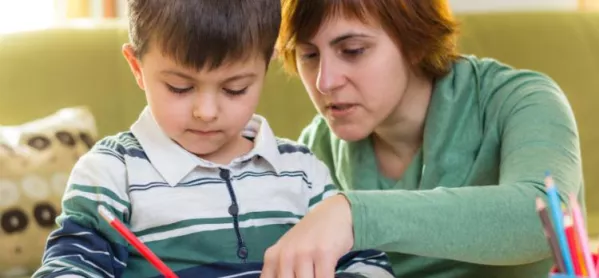- Home
- ‘My response to Ofsted’s new report on Reception teaching? Best retire now’
‘My response to Ofsted’s new report on Reception teaching? Best retire now’

When I read Ofsted’s report into the Reception curriculum, my first thought was “bullshit”; my second was “best retire now”.
The report, ‘Bold beginnings: the Reception curriculum in a sample of good and outstanding primary schools’, gives 12 key findings based on visits to 41 schools in one term, all of which highlight the perceived failings of teaching in the Reception year.
It is depressing reading.
Headline issues
Unpicking the full report, there is much buried in it that I agree with as an early years mathematics specialist. In particular, the references to practical equipment, games, and real problems.
However, the 12 key findings and resulting 15 recommendations - five for primary schools, two for initial teacher training and four each for the DfE and Ofsted - neither reflect the body of the report, nor flow from the reported findings. Instead, they reflect a highly politicised agenda of the headlong push to a more formal education for the Reception year.
Shame on you, Ofsted.
There are others more qualified than I to talk about the lip service paid to the significance of the three prime areas of development (personal, social and emotional development; physical development; communication and language), which warrant just two mentions in the report (page 10 and page 13) as “building blocks” for all other learning.
To gloss over these and spend several pages on mathematics and literacy says much about the agenda of this report and the lack of reference to, or acknowledgement of, how young children learn.
Reception document failings
On page four this statement appears: “for too many children their R year is a missed opportunity”.
On what basis is that announcement made? Surely not solely on the percentages of children achieving a good level of development (72 per cent of all children and 54 per cent of “disadvantaged” children). In reference to mathematics in particular, the report refers to the lack of fit between the early learning goals (ELGs) and the Year 1 curriculum and whether they “prepare” children for Year 1.
Funnily enough, I was discussing this with 30 Reception practitioners yesterday. This document fails to acknowledge that neither the ELGs nor the Year 1 mathematics requirements are rooted in our knowledge of young children’s learning. It appears that instead of asking whether the current curriculum is appropriate for these children, it recommends that we adjust the children to fit the curriculum.
And yet we know which elements of the ELG for number are unsupported by research and unachievable by 5-year-olds (email me for the answer). If this was tackled, the number of children for which the Reception year is a “missed opportunity” would fall.
Reason for hope
Now, to something slightly more positive. I agree wholeheartedly with the statements regarding the complete lack of understanding of the Reception year among the wider educational community, as well as how our youngest pupils learn and develop. I agree that many early years practitioners are under-confident in teaching mathematics.
However, all those I have met in more than twenty years of working in the field, welcome support, training and advice.
Yet there is no recommendation among the 15 to tackle this. Instead, we have worrying and vague references to “schemes” being used effectively and a lack of “schemes” for Reception being detrimental to children’s mathematics learning. Surely we know by now that a scheme in itself will not solve anything?
Clearly, the only way to prepare children for Year 1 is to provide an appropriate and rich Reception experience, not a watered down Year 1 curriculum with an undue rush to formality before the rest of the developed world is even in school.
Dr Helen J Williams is a teacher, consultant and writer, primary and early years mathematics. She tweets @helenjwc
Register with Tes and you can read two free articles every month plus you'll have access to our range of award-winning newsletters.
Keep reading with our special offer!
You’ve reached your limit of free articles this month.
- Unlimited access to all Tes magazine content
- Save your favourite articles and gift them to your colleagues
- Exclusive subscriber-only stories
- Over 200,000 archived articles
- Unlimited access to all Tes magazine content
- Save your favourite articles and gift them to your colleagues
- Exclusive subscriber-only stories
- Over 200,000 archived articles